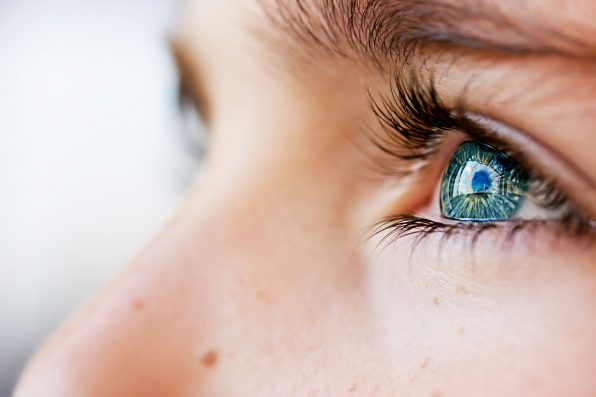Ommetaphobia Is An Intense Fear Of Eyes That Causes People To Avoid Making Eye Contact, Being Observed By Others, Or Even Thinking About Eyes

In situations of danger, it’s normal to feel fear. However, phobias go beyond the natural fear response and are irrational. Often, the source of the fear does not pose an actual threat.
Yet, a person with a specific phobia will be overwhelmed with terror nonetheless. One of these phobias is ommetaphobia, which involves a severe fear of eyes.
People who experience ommetaphobia will go to great lengths to avoid everyday situations such as making eye contact, being observed by others, or even thinking about eyes. All these things can activate a fear response.
Some common signs of ommetaphobia include fear or anxiety over seeing or thinking about eyes, difficulty socializing due to the involvement of eye contact, and steering clear of any images or media that contains eyes.
These may be accompanied by physical symptoms like rapid heart rate, sweating, crying, trembling, and lightheadedness.
It is said that ommetaphobia may go hand in hand with trypophobia, which is the fear of holes. Some people with trypophobia are afraid of clusters of eyes or eyes staring back at them. Compared to other phobias, ommetaphobia is relatively rare.
According to a psychiatrist and professor at Columbia University named Dr. Ryan Sultan, ommetaphobia is one of the least common phobias. The most common are fear of heights and fear involving animals, such as arachnophobia.
The exact cause of ommetaphobia is not fully known or understood, but it’s thought that the development of this phobia is influenced by both hereditary and environmental factors.
Usually, traumatic experiences involving the eyes or vision can create a strong fear. Repeated exposure to a negative event can condition an individual to become triggered every time they encounter it.

Victoria Key – stock.adobe.com – illustrative purposes only, not the actual person
Additionally, some people may have a genetic predisposition to developing anxiety disorders, which can make them more likely for ommetaphobia to occur.
Phobias like ommetaphobia can interfere with daily life and cause a lot of shameful feelings. It is possible to manage the fear and improve the overall quality of life effectively.
The best treatments for ommetaphobia are cognitive-behavioral therapy (CBT) and exposure therapy.
If you have a phobia that is preventing you from getting through your day-to-day life, it’s time to seek out the services of a mental health professional.
Sign up for Chip Chick’s newsletter and get stories like this delivered to your inbox.
More About:News





